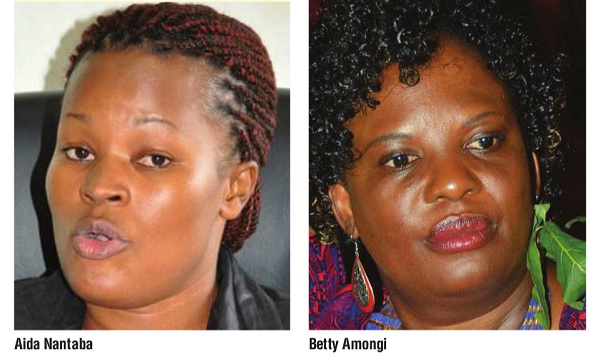
The new Lands Minister, Betty Amongi says the proposed reforms that emerged from the recent cabinet retreat at the National Leadership Institute, Kyankwanzi, are intended to increase investments.
“We simply want the act to change and state that government shall provide fair and adequate compensation to landowners without the word prior in it,” she reportedly told The Observer newspaper, “This means that developments can go on as negotiations for compensation are also ongoing.”
She also spoke about another part of the reform, titling of land, which appears to have been eclipsed by the debate on compulsory acquisitions.
Amongi says titling land is demand driven and several communities stand to benefit from a $55 million World Bank project for accelerating land registration and titling. The project aims at issuing one million land titles countrywide and Ugandans will have a chance to register their land for free.
Amongi’s attempts at reassuring citizens appear to have fallen flat.
Apart from Walubiri and Nsibambi, the defacto leader of the opposition, Dr Kizza Besigye has told journalists that the proposed reforms will intensify land grabbing.
While Besigye acknowledged the advantages of getting land registered, he cautioned against the “circumstances” in which the intended acceleration of land registration is going to take place and expressed concerns that the reforms would be a disaster since the country’s current land management system is heavily exposed to corruption.
“I would like to refer you to a statement that again was not given much attention, made by Minister Aidah Nantaba as she handed over office,” Besigye told journalists. “She said that there is a powerful mafia in government that is grabbing land. This was a statement by a government minister; it’s not idle, there is a real mafia grabbing land.”
Walubiri, meanwhile, says Museveni’s push to acquire land is not new and dates back to the days when the constitution was promulgated.
He told The Independent that when President Museveni was promulgating the constitution on October 08, 1995, he said that while some of the provisions in the constitution were good, others were not and cited the fact that government had not been given powers to allocate land for investment.
Walubiri says President Museveni has since been pushing to award land to investors. Walubiri said the new proposal is even more unfortunate given the government’s long record of grabbing people’s property.
The law and corruption
Walubiri said that government cannot solve the problem of delays to implement projects as a result of delays in acquisition of land by Okaying another injustice, by putting in place unconstitutional laws.
He also castigated the proposal to compulsorily acquire land prior to compensating owners. “If you want land,” he said, “the law is clear, you first compensate people. But even where they have acquired land, they have not compensated people.”
Indeed, last year, the Supreme Court outlawed government’s compulsory acquisition of private land before compensating owners.
The ruling followed an appeal in which the Uganda National Roads Authority (UNRA) was challenging a decision the Constitutional Court that declared Section 7(1) of the Land Acquisition Act as unconstitutional and in contravention of Article 26 of the Constitution.
The court’s decision followed a petition by Asuman Irumba, a property owner in Kyeharo-Kabwoya in Hoima District, and Charity organisation Advocates for National Resources Governance and Development (ANRGD) against Attorney General and the roads authority.
The two had complained that the roads authority took Irumba’s land before compensation during the upgrading of HoimaKaiso-Tonya road in Hoima District.
Irumba’s case is not isolated. Apart from the cases of northern by-pass, where years later, some people have not been compensated, Walubiri said he handled a case on Mbarara-Katuna road. He had secured an injunction against the road works but managed to reach an agreement with government.
In a consent judgement, the government agreed to revalue the land and pay his client. If it failed to pay, the government would start paying interest of 15 % on the value. That was three years ago. Since 2013, interest has been accruing.
“These fellows have not done anything,” he said, “so, who do you blame?”
He also says that government’s selective compensation and delay to pay are some of the things that fuel corruption.
“Because of these delays people ask for more money and government officials clear the pay because they are promised a cut,” he said, “but even then corruption cannot be an excuse because those officials can be prosecuted, why aren’t they prosecuted?”
So the corruption is not because of land owners, Walubiri said, the corruption is there because you have a corrupt government.
This is not the first time land reforms are courting controversy in Uganda.
In 2007, the government introduced a land amendment, which it said was intended to stop the evictions and regulate the relationship between land owners and tenants.
But the amendment drew a lot of criticism from land-owners and politicians. Buganda kingdom, a major land owner was most critical with its officials saying the amendment was intended to grab its land.
In 2013, President Museveni also came up with the controversial directive of halting all evictions in the country until land conflicts are resolved.
Museveni appointed a committee headed by then junior Lands Minister Aidah Nantaba to traverse conflict-prone areas to resettle people evicted illegally. Legal experts at the time castigated the directive saying it under-mined judicial powers.
 The Independent Uganda: You get the Truth we Pay the Price
The Independent Uganda: You get the Truth we Pay the Price






“This means that developments can go on as negotiations for compensation are also ongoing.”
HOW CAN THIS HAPPEN??
its like saying, ” let me buy your house, kick you out and start using it, let me start enjoying the benefits from it while we negotiate the price and payment.”